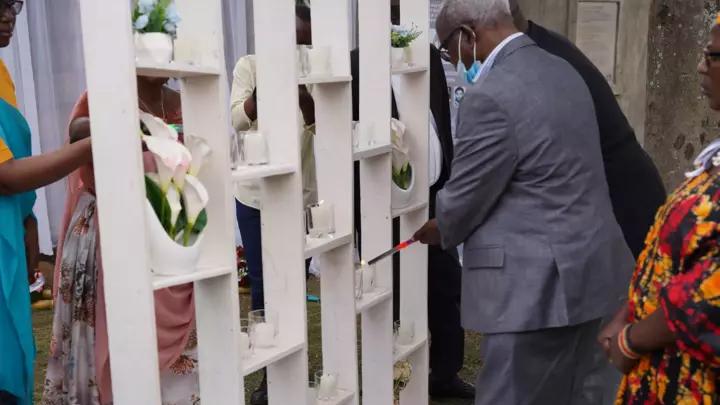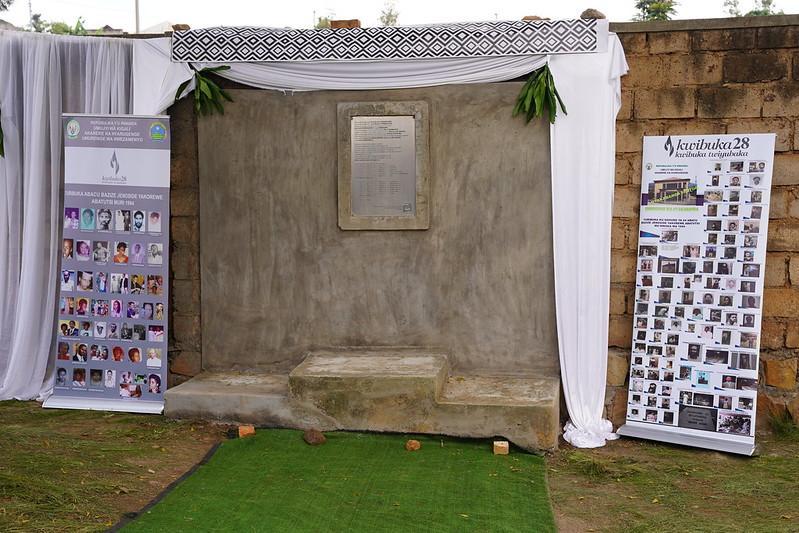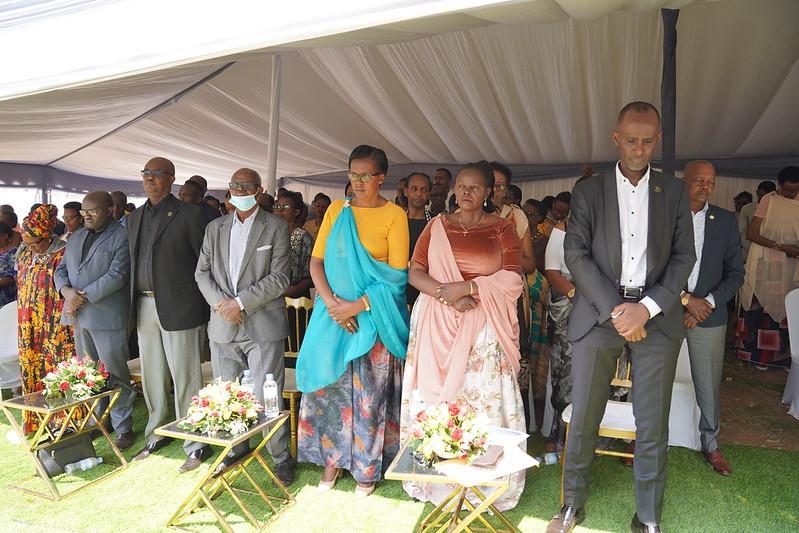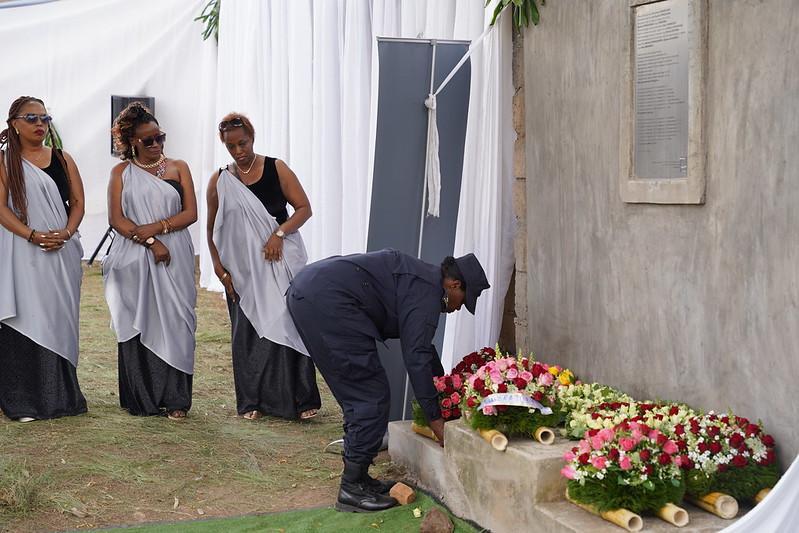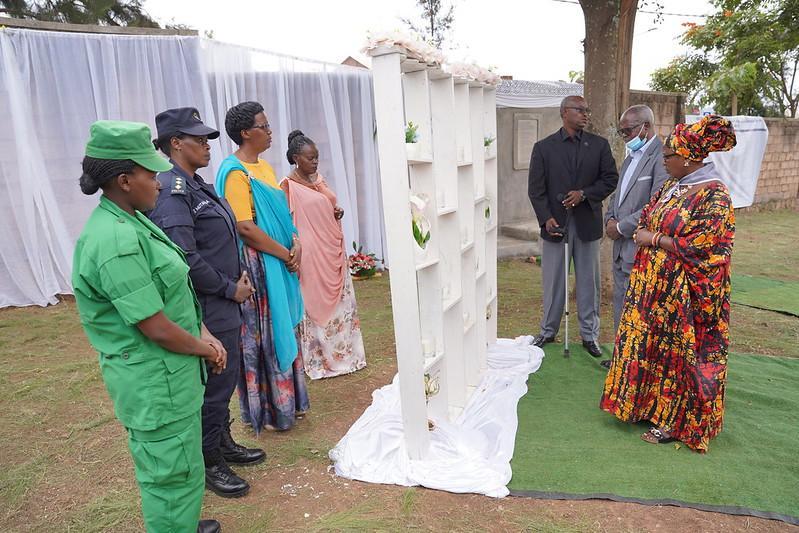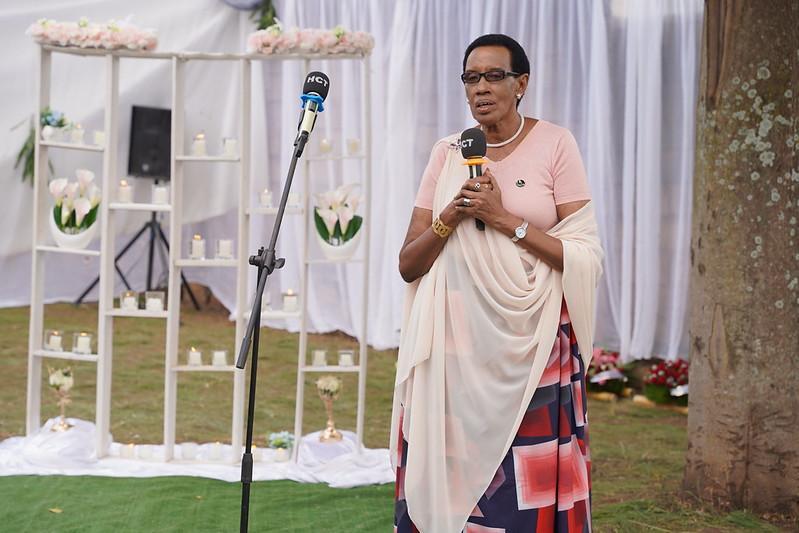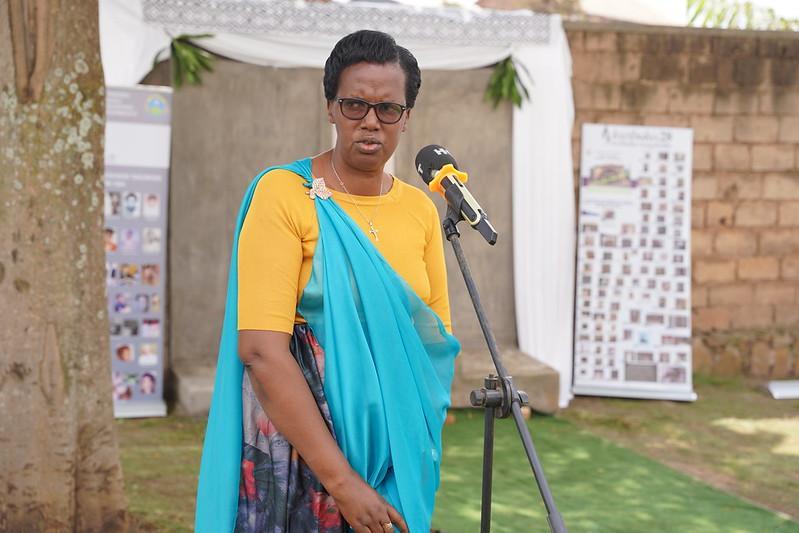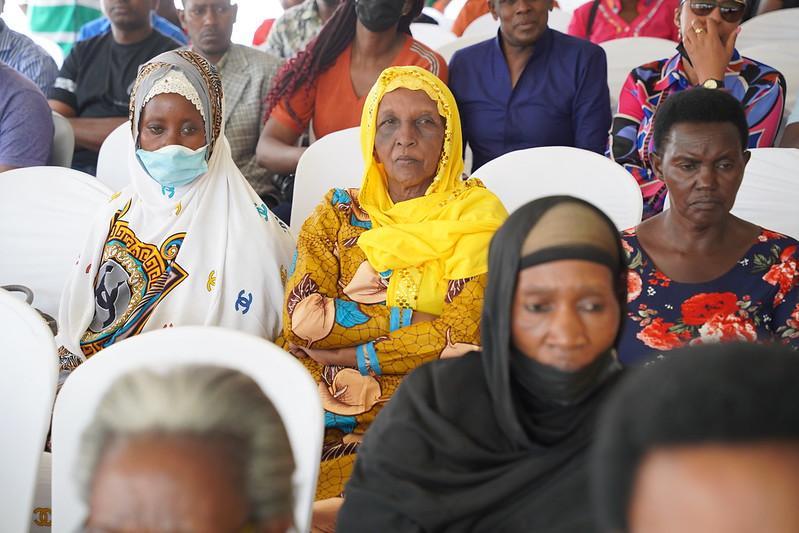Africa-Press – Rwanda. On the night Habyarimana’s plane crashed, Denise Mutamuliza, a genocide survivor residing in Nyakabanda, Nyamirambo Sector, was home alone with her sister.
There was a lot of noise on the streets, and upon noticing that something was wrong, they decided to close themselves indoors.
Her husband was away at the time, and unfortunately, he was never to come home. Killings by then had started and the hope of her ever seeing him again disappeared.
Screams of pain and distress were all over, and Mutamuliza only hoped it didn’t come to her house. But it wasn’t long when death came knocking on her door.
“On April 8, some people came to my house, one had a machete and another had a gun. They took us with them, as we were heading out, noise was made from a distance about a certain man, Seruvumba, who was going to be killed, they left us and ran to kill him first, that’s how we survived the first day,” the 55-year-old narrates.
The following days were terrible ones, haunted by whistle-blowing, songs of hatred, and sounds of guns and dogs barking. They were dark days, she says.
They had run and joined others who were hiding in bushes and plantations. Some wore grass, others, banana leaves, in order to camouflage and be able to hide from the killers.
But things only got worse; plantations and bushes were slashed for they knew that’s where Tutsis were hiding. “Everyone had machetes. I remember one man we were hiding with (Innocent) when they caught him, he was hit in the head and died. I saw everything happen; I didn’t deserve to watch this with my eyes. Every moment felt like it was my time to be killed. My only wish was to die.”
“Each day was dark and terrible, my sister and I were raped. I conceived as a result of that. The tragedy left me in a lot of pain, but not only that, it left my daughter and I infected with HIV. She is now 28 years old, but the worst part is she refused to take medication, and is only waiting for her day to die.”
Mutamuliza says her only hope back then was when RPA soldiers came to their rescue.
“I remember some of them were wearing scarfs made from bitenge, I immediately felt safe and saw hope in the midst of all what was happening.”
Mutamuliza lost her family and only survived with her sister.
Survivors in the area came together and held this event in commemoration of loved ones lost during the 1994 Genocide against Tutsi.
They laid a wreath on the deceased, as they also shared stories of how most of them survived the tragedy.
The commemoration event took place at the ‘late Rwagasana’s place’ in Nyamirambo, where over one hundred names were read in honour and commemoration of lives lost.
Antoine Mugesera, a resident who was part of the commemoration event said that, “It is very important for us to talk about our history and it is our responsibility so that what happened in the past doesn’t happen again.”
Mugesera added that, “It gives hope that the future is bright and we shall be here to support you, it is up to us to tell our history, how we saw it, and know it rather than all those who tell it, through hearsay.”
The commemoration event took place at the ‘late Rwagasana’s place’ in Nyamirambo ,at the same location where a mass grave was discovered in 2019.
Mourners observe a moment of silence to pay tribute to the victims during the commemoration event.
For More News And Analysis About Rwanda Follow Africa-Press

